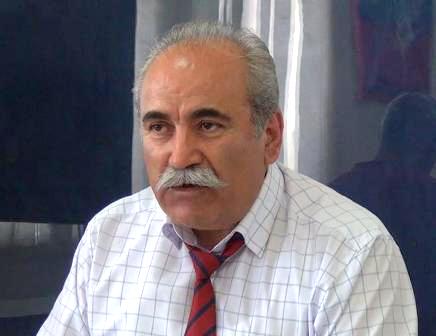 The adoption by the United States of documents qualifying the massacres of the Armenian population in the Ottoman Empire in 1894-1923 as a pre-planned and purposefully carried out act of genocide, has a long history. These documents and concrete steps clarify the US policy on this issue, they date back to 1894.
The adoption by the United States of documents qualifying the massacres of the Armenian population in the Ottoman Empire in 1894-1923 as a pre-planned and purposefully carried out act of genocide, has a long history. These documents and concrete steps clarify the US policy on this issue, they date back to 1894.
Here is a short list of them:
– Resolutions of the Senate (January 24, 1896) and the House of Representatives of the US Congress of January 27, 1896 «Crimes against the Armenian people» (Hamidian pogroms against Armenians);
– The activities of the US Government represented by the US Ambassador to Turkey Henry Morgenthau during the First World War on the issue of documentary confirmation of the massacres and deportations of Armenians, the creation of a public Fund that helped the surviving Armenians of the Ottoman Empire, as well as the creation of the «Committee on Atrocities against Armenians» (in 1919 renamed the «American Committee for Relief in the Near East»);
– United States Senate Concurrent Resolution 12, dated February 9, 1916;
– Resolution of the House of Representatives of the US Congress on the ongoing persecution and deportation of Armenians in Turkey, the evacuation of Armenians from Cilicia and on the possibility of creating an Armenian state, dated March 7, 1922;
– United States Congress Act to Incorporate Near East Relief dated, August 6, 1919;
– Written Statement of the Government of the United States of America, dated May 28, 1951;
– United States House of Representatives Joint Resolution 148 on the recognition and condemnation of the Armenian Genocide, dated April 8, 1975;
– Presidential Statement (Proclamation 4838) by Ronald Reagan, dated April 22, 1981;
– United States House of Representatives Joint Resolution 247 on the recognition of the Armenian Genocide, dated September 12, 1984.
In this series, as a special position of the US state policy, of exceptional importance are:
– United States House of Representatives Resolution 296 on the recognition and condemnation of the Armenian Genocide, dated October 29, 2019;
– United States Senate Resolution 150 on the recognition and condemnation of the Armenian Genocide, dated December 12, 2019;
– Statement by US President Joseph Biden on the recognition of the Armenian Genocide, dated April 24, 2021.
Resolution No. 296 of the House of Representatives of the US Congress of October 29, 2019 contained new provisions for the effective continuation and implementation of work on the recognition, condemnation of the Armenian Genocide and compensation for damage for the Genocide.
The Resolution noted:
«The Elie Wiesel Genocide and Atrocities Prevention Act of 2018 (Public Law 115–441) establishes that atrocities prevention represents a United States national interest, and affirms that it is the policy of the United States to pursue a United States Government-wide strategy to identify, prevent, and respond to the risk of atrocities by “strengthening diplomatic response and the effective use of foreign assistance to support appropriate transitional justice measures, including criminal accountability, for past atrocities.».
This paragraph expresses the essence of the issue, in particular, that «the policy of the United States is to pursue a United States Government-wide strategy to identify, prevent, and respond to the risk of atrocities».
Almost identical wording was adopted by the US Senate on December 12, 2019 as Resolution No. 150.
US President Joseph Biden in his Address of April 24, 2021, twice used the term «genocide» and once – «Metz Yeghern» («Great Atrocity»).
The Statement expresses the following thought three times:
«Each year on this day, we remember the lives of all those who died in the Ottoman-era Armenian genocide and recommit ourselves to preventing such an atrocity from ever again occurring». «We affirm the history. We do this not to cast blame but to ensure that what happened is never repeated». «Let us renew our shared resolve to prevent future atrocities from occurring anywhere in the world. And let us pursue healing and reconciliation for all the people of the world».
This is especially important for the correct qualification of the aggression carried out from September 27 to November 9, 2020 by the Turkish-Azerbaijani alliance with the involvement of terrorist groups and mercenaries and with the support of some states, for the qualification as state terrorism and genocide against the Republic of Artsakh and the Armenian population of Artsakh.
It should be noted that it is obvious for the United States (as well as for other states that have recognized the Armenian Genocide) that the genocide that began in 1894-1896 and continued in 1915-1923, the genocide against the Armenian people, as well as the indigenous peoples of the Armenian Highlands and the Middle East: Assyrians, Greeks, this genocide continues to this day.
Recognition of the Armenian Genocide by the US legislative and executive authorities is an essential contribution to continuing of the struggle and achieving success in recognizing, condemning and reparations for the Armenian Genocide.
And the most important thing is a legal document on the right of the Armenian people to achieve a fair solution to the Armenian cause, it is the historic Arbitral Award of the 28th President of the United States, Woodrow Wilson, issued on November 22, 1920, the full title of which is: «The decision of the President of the United States Woodrow Wilson on the establishment of the state border between Turkey and Armenia, the issue of Armenia’s borders maritime access and about the demilitarization of the Turkish territories adjoining the Armenian border».
The following should be especially noted in relation to the Arbitration Award:
a) The Arbitral Award is inalienable, inviolable and enforceable.
b) In accordance with the Arbitral Award, the title and rights of Armenia are assigned to the provinces of the former Ottoman Empire, Van, Bitlis, Erzurum and Trebizond.
c) The award is also contraindicated for Armenia and Turkey, as well as for other countries that signed the Sèvres Peace Treaty, as well as for the arbitrator – the United States.
d) According to the Arbitral Award, starting from November 22, 1920, that is, from the moment of the Arbitral Award, the Turkish territory adjacent to the Armenian border will be demilitarized.
For decades, the Greater Middle East, as well as the Armenian Highlands, which is commonly called the cradle and crossroads of civilizations, have been in a deep humanitarian and military-political crisis, which has long grown into a civilizational crisis. The reason is that the decisions made in 1920 by the Sèvres Peace Treaty and the Arbitral Award by the 28th President of the United States of America Woodrow Wilson on the rights of Armenians and other peoples were not implemented. There is no other way out of this regional crisis, which also affects world processes, but to implement these decisions, thereby also overcoming the crisis in the cradle and crossroads of civilizations – in the Armenian Highlands.
It is obvious that only through the protection and application of the rights of Armenians and other indigenous peoples of the region is it possible to establish in the Greater Middle East the long-awaited and demanded lasting peace and cooperation between the states and people of the region.
Statement by President of the United States Joseph Biden on April 24, 2021 is a source of hope and inspiration for all affected by the genocide and disenfranchised indigenous peoples of the Middle East.
The Armenian people are grateful to the President of the United States, the legislators of the United States, the people of the United States, all those who for decades have supported faith and hope in achieving justice and fought for it.
Our people will never forget this.
Our people will never forget that this shortens the path to justice and compensation for damage.
Radik Khamoyan
President of the Republic of Western Armenia (Armenia)
April 24, 2021







